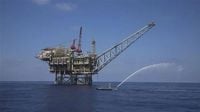On the morning of Wednesday, June 25, 2025, natural gas supplies from Israel to Egypt resumed, marking a significant step toward stabilizing energy flows in the region after a tense and disruptive period. The supply recommenced at a rate of 260 million cubic feet per day, following a temporary halt that lasted several days due to the closure of Israeli gas facilities amid recent regional military tensions.
The interruption in gas exports came in the wake of a wide-ranging Israeli airstrike on nuclear and military sites inside Iran in mid-June. This military escalation prompted Israeli authorities to shut down key gas installations, including the Leviathan and Karish offshore fields, as a precautionary measure against potential retaliatory attacks targeting critical energy infrastructure. The closures had a direct and immediate impact on the energy security of both Egypt and Jordan, two neighboring countries reliant on Israeli natural gas supplies.
Egypt receives its Israeli gas primarily through the East Mediterranean pipeline, which stretches from Ashkelon in Israel to El-Arish in Egypt. Additional quantities are delivered via the Arab Gas Pipeline passing through Jordan. Following the shutdown of Israeli gas fields, both Cairo and Amman were compelled to reduce gas supplies to certain industrial sectors in order to prioritize electricity generation needs, underscoring the vital role of these imports in sustaining national energy grids.
According to an informed source familiar with gas export operations who spoke to CNN Business, the resumption of supplies to Egypt is part of a gradual process aimed at restoring full operational capacity in line with existing commercial agreements and Egypt’s import plans. The source explained that the current flow of 260 million cubic feet per day is expected to increase steadily in the coming days and weeks.
The Israeli Ministry of Energy had ordered the shutdown of the Leviathan field, Israel’s largest natural gas reserve, operated by American energy giant Chevron, on June 13, 2025. This move was mirrored by the closure of the Karish field, managed by Energean, which supplies gas solely for the domestic Israeli market. NewMed Energy, a partner involved in Leviathan’s operations, announced that preparations were underway to resume normal production within hours after approximately one week of inactivity.
The decision to halt production at these fields was driven by concerns over the safety of critical infrastructure amidst the military confrontation between Israel and Iran, which involved reciprocal attacks. Israeli media reported that two out of three of Israel’s offshore gas fields were closed, leading to a complete stoppage of gas exports to Egypt and Jordan during the crisis period.
The regional energy disruption has highlighted the vulnerabilities of relying on gas imports amid geopolitical conflicts. Egypt, which has seen a decline in domestic natural gas production, has been actively seeking to bolster its energy security by increasing imports. In recent months, Cairo began supplementing pipeline imports with liquefied natural gas (LNG) shipments to bridge the gap between production and consumption, particularly to meet heightened summer demand.
In June 2022, Egypt, Israel, and the European Union signed a trilateral Memorandum of Understanding aimed at enhancing the export of Eastern Mediterranean gas to European markets. This agreement leverages Egyptian LNG facilities located in Idku and Damietta as key liquefaction hubs, positioning Egypt as a regional energy transit and processing center.
The recent military escalation tested the resilience of this energy cooperation. However, the announcement of a ceasefire agreement between Israel and Iran, confirmed by both US President Donald Trump and Israeli Prime Minister Benjamin Netanyahu, paved the way for the resumption of gas production and exports. The ceasefire has brought a measure of relief to the region’s energy markets, allowing key gas fields to restart operations and supplies to flow once again.
Industry observers note that the restoration of Israeli gas exports to Egypt is crucial not only for meeting Egypt’s domestic energy needs but also for maintaining the broader regional energy balance. The temporary suspension had forced energy planners in Cairo and Amman to make difficult decisions about rationing gas supplies, underscoring the strategic importance of uninterrupted gas flows for economic stability and electricity generation.
As the Leviathan field ramps up production, the gradual return to full export capacity is expected to ease pressure on Egyptian energy supplies, reducing reliance on expensive LNG imports. This development also supports the ambitions of the Eastern Mediterranean gas corridor as a reliable energy source for Europe, especially in light of ongoing global energy market uncertainties.
While the situation remains fragile given the complex geopolitical landscape, the current resumption of natural gas exports from Israel to Egypt represents a hopeful sign of stabilization. It underscores the delicate interdependence of energy security and regional diplomacy, where commercial agreements and political developments are closely intertwined.
In the coming weeks, close attention will be paid to how quickly Israeli gas fields can restore full output and whether the ceasefire holds firm to prevent further disruptions. For now, Egypt’s energy sector can breathe a little easier as pipeline gas flows back, helping to power homes, industries, and the economy during a critical summer period.




